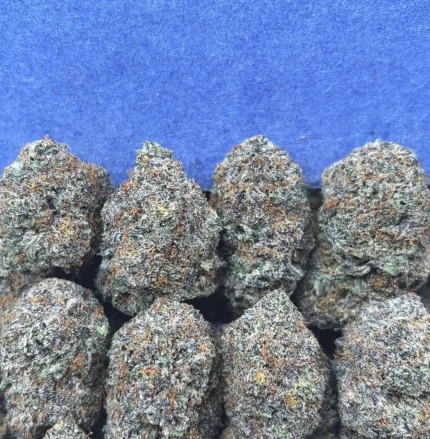Chronic pain affects more people in today’s society than cancer, cardiovascular disease, and diabetes combined. In fact, chronic pain is the leading factor in the development of long-term disability in the United States. Chronic pain is a complex condition that causes the body to experience physical, mental, and emotional stress on the body. As a result, the management of chronic pain calls for an integrated strategy that incorporates pharmacological, non-pharmacological, and interventional treatments. With the rapid increase of individuals enduring chronic pain, many medical facilities struggle to find solutions to manage certain types of pain. But over the course of many years, there have been numerous studies addressing the effectiveness of medicinal cannabis in treating chronic pain.
Medicinal cannabis has gained traction as a potential treatment for chronic pain. While cannabis plants are complex, come in a wide range of varieties, and have a variety of chemical compositions, nearly all of these plants contain some combination of two medically important compounds: tetrahydrocannabinol (THC) and cannabidiol (CBD). These two chemicals both show the potential to ease pain, but in different ways. In light of this, cannabis has been legalized in many states in the US and manufactured into cannabis products available for purchase, such as CBD & THC gummies, which provide relief from several conditions.
Although CBD and THC both work in the same way to relieve pain, there are some significant variations between the two. Notably, in contrast to THC, CBD does not produce any of the psychotropic effects that many people associate with the sensation of being high brought on by cannabis.
In this article, we will explain more about the differences and similarities between CBD and THC.
Psychoactive Components
Despite having similar chemical structures, CBD and THC don’t have the same psychoactive effects. CBD is psychoactive, but not in the same manner as THC because, unlike THC, CBD doesn’t produce a high sensation to its users.
Cannabinoid 1 (CB1) receptors in the brain are activated when THC connects with them, which results in a feeling of euphoria or a high. According to the findings of some studies, the effects of this high could be amplified by smoking or vaping the THC rather than consuming it orally.
On the other hand, CBD binds to CB1 receptors minimally, if at all. CBD cannot connect to the CB1 receptor without THC, which in turn, lowers some of the unwanted psychoactive effects of THC, such as euphoria and drowsiness.
Chemical Structure
CBD and THC both have very similar chemical structures, even though they produce very different pharmacological effects. Both of them have a total of 30 hydrogen atoms, two oxygen atoms, and 21 carbon atoms in their makeup. The difference between CBD and THC, however, can be attributed to a subtle distinction in the atomic arrangement of the two compounds. CBD and THC are able to interact with the cannabinoid receptors in your body because they share chemical similarities with the endocannabinoids that are naturally produced by your body.
Medical Benefits and Uses
CBD and THC have many same medically advantageous qualities. They have the ability to treat the symptoms of chronic conditions simultaneously. However, CBD, in contrast to THC, does not provide the euphoric effects that are typically associated with cannabis. Due to the fact that CBD does not generate this side effect, it is feasible that some individuals will find it to be a more desirable option.
In addition, although they have comparable effects when relieving pain, the applications of each substance are different in several aspects.
Patients frequently use CBD to assist in the treatment of the following conditions:
- Inflammatory bowel disease
- Seizures
- Depression
- Inflammation
- Psychosis or mental disorders.
Meanwhile, THC is used to treat the following:
- Glaucoma
- Muscle spasticity
- Low appetite
- Insomnia
Side Effects
Neither CBD nor THC produces a significant amount of unwanted side effects. Additionally, research conducted by the World Health Organization (WHO) indicates that CBD is completely risk-free, does not show any signs of having the capacity to be abused, and is not able to result in any negative effects.
Meanwhile, since THC produces a high sensation, a person consuming this may experience temporary side effects such as dry mouth, burning eyes, and slower-than-average response time. Nonetheless, neither CBD nor THC has any apparent side effects that are considered dangerous. Neither can be fatal when administered appropriately. Additionally, there is minimal evidence to suggest that those who use THC for recreational purposes are in danger of developing an addiction to the substance.





